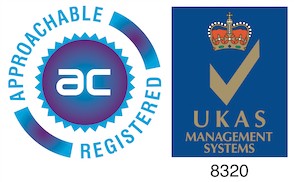How Has The Gambling Industry Changed Over The Past Year?
Over the past year, industries around the world have been dramatically affected by the pandemic. While some businesses prospered with a switch to online retail, others suffered as a result of rapid closures of premises and factories. The gambling industry is one that had a mixed result with retail stores forced to shut their doors whilst online gambling sites thrived.
Here, we look at how the gambling industry strives to move forward during what can only be considered a challenging period.
Increase in online gambling participation
When the pandemic first hit the UK back in March 2020, all retail gambling venues were forced to close their doors. According to the UKGC, this meant that gambling activities that generate 50% of the overall market would be stopped. These closures were echoed across many countries in Europe with players forced to go online to play games and gamble. At the beginning of the lockdown, online participation figures spiked.
Additionally, the UKGC found that players were moving toward trying a larger number of products, rather than just a single product as before. According to a YouGov survey, a group of engaged gamblers were more likely to try online bingo, online slots and virtual races or sports. Additionally, they noted that among the past-four-week gamblers surveyed, the main new activity for them was National Lottery draws.
However, it is worth noting that while many players switched to online products, figures start to decline later in the year. Reports suggest that overall participation in any gambling activity fell to 42% by the end of December. It is clear that 2020 was a unique year for the industry, in the UK at least.
Changes in gambling regulations
Across Europe, gambling regulations and markets have changed over the past year. This isn’t solely down to the pandemic but a global need for operators to do more when it came to player verification and authentication, and to identify much earlier on, signs of vulnerable players. Some governments even paused gambling activity online in order to reduce the risks of problem gambling.
Towards the end of last year, the UKGC has been reviewing the Gambling Act which has initially resulted in the minimum age for the National Lottery being increased, as well as changes required for slot machines.
In Germany, the GlüNeuRStV was passed in March 2020 which began the start of a new regulated German iGaming market. Despite the financial impacts of the pandemic, some operators have had licenses approved already and are starting to attract players in this territory. These changes certainly caused a stir with operators and affiliates having to rapidly react by implementing the required regulatory changes.
The Netherlands has also been making big plans to their online gambling industry. With the Dutch Remote Gambling Act (Koa) pushed back and April 1st now the official date that gambling licences can be applied for, the KSA has reiterated its stance that player verification, authentication and protection be the highest priority for operators.
What responsibility do operators have?
Although gambling participation has started to drop again in some countries, gambling operators still need to pay attention to the figures. In the UK, gambling retail stores still aren’t open and so the main source of income for some of the biggest brands is online.
Any operators who accept players online must verify and authenticate the age and identity of their players to ensure they are not under the minimum age for participation. If they don’t, they not only put minors at risk but also risk action from the UKGC.
That’s not all – operators also have a responsibility to spot any warning signs of problem gambling. With the pandemic encouraging people to try online gambling, this risk is only heightened.
How can AgeChecked help?
AgeChecked offers a variety of age verification software for gambling. This includes solutions for German and Dutch markets, where our platform is able to swiftly and secure verify and authenticate the players’ age and identity using a multi-factor authentication process including open banking access, character recognition scanning or biometric comparisons allows us to offer the highest levels of assurance to our clients that the customers’ identity is accurate.
AgeChecked also offers a Player Vulnerability Monitoring solution that helps operators identify problem gamblers. By integrating with your live chat function, this sophisticated AI technology identifies, in real time, keywords and phrases to flag that individual to the support agent. With over 430,000 people with a gambling problem in the UK, this solution is now more crucial than ever. Get in touch today to request a free demo.





